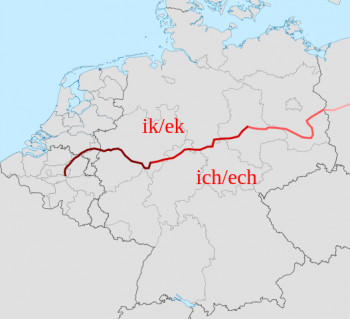Archive for September, 2014
German grammar in use: The conjugation of the verb “sehen” Posted by Sandra Rösner on Sep 15, 2014
The German verb sehen (to see; to look; to face) is a strong verb, which means that it has another root vowel in the preterit. In the overview below you can find the conjugations of the verb sehen in the German tenses: Präsens, Imperativ, Präteritum, Futur I, Perfekt and Futur II. The additional examples are…
Sayings + Expressions 8: The Fall and The Cosmetics Posted by Sten on Sep 15, 2014
Liebe Leser! First of all, sorry for the delay, but here we are again… The next sayings + expressions! This time, we are concerned with falling, and… cosmetics? The saying, please! Hochmut kommt vor dem Fall Pride/Haughtiness goes before a fall The meaning of this saying is quite clear, and originates in the Bibel (Bible), in Sprüche (Proverbs) 16,18…
Why Bavaria Party Supports Scottish Independence Posted by Constanze on Sep 13, 2014
When I was last in Bayern there was an upcoming election, and the streets were filled with campaign posters for the different political parties. The one that stood out to me the most was the rather satirical poster for the Bayern Partei – the Bavaria Party. This is what it looked like: What I liked…
German grammar in use: The conjugation of the verb “kommen” Posted by Sandra Rösner on Sep 8, 2014
The German verb kommen is an irregular verb. That is, there is a vowel change when you form its past. The common English translation of kommen is “to come” or “to arrive”. But kommen is also used in several phrases. Check out the example sentences below to find out how the verb kommen is used…
Holiday Destination: The Unspoilt Islands of Germany. Posted by Constanze on Sep 2, 2014
As I am going on holiday this week I am in great spirits, and so I felt inspired to write this holiday-themed post for all of you who want to escape the cold weather (remember: It’s still summer somewhere in the world!). When people think of beach holidays in Europe, they think of places like…
German grammar in use: The conjugation of the verb “machen” Posted by Sandra Rösner on Sep 1, 2014
The regular German verb machen means “to do” or “to make” in English. But machen is also used in various compounds in German, which have specific English translations. In these specific translations the English verbs “to do” and “to make” need not occur necessarily. Präsens – Present tense In German the Präsens is used to…





